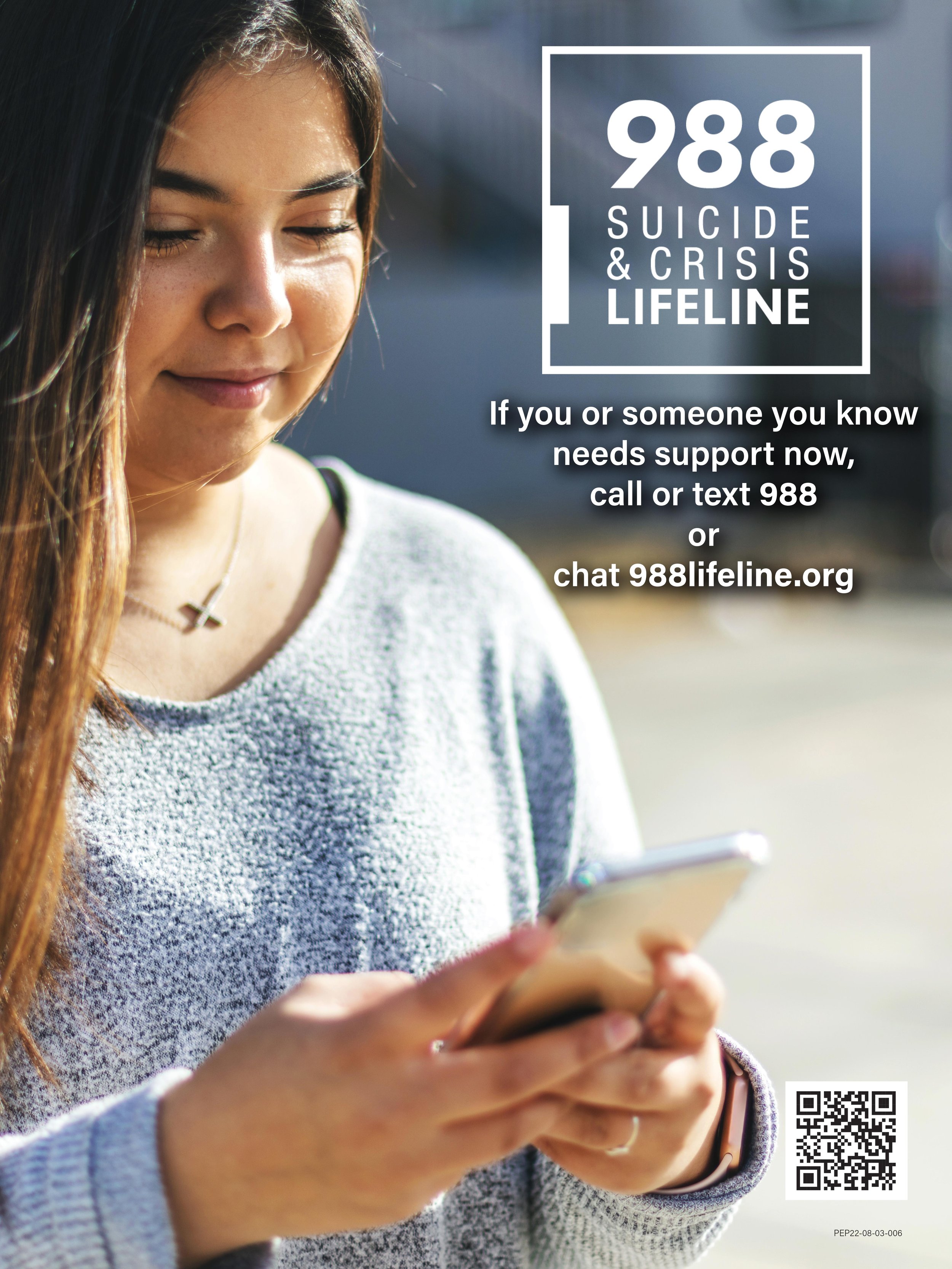Suicide prevention
Grays Harbor County Public Health
Home > Suicide prevention
We are glad you are here.
IT’S OK TO NOT BE OK
HELP IS HERE 24/7, 365 DAYS A YEAR
Call or text 988, or live chat at 988lifeline.org
The Lifeline provides 24/7, free and confidential support for people in distress, prevention and crisis resources for you or your loved ones, and best practices for professionals in the United States.
GET MORE INFORMATION ON 988 SERVICES AT https://988lifeline.org/
Additional resources
The Trevor Project
Offers suicide intervention services for LGBTQ youth ages 13-24 through telephone, text, or chat.
Trans Lifeline
Offers suicide intervention services for people who are gender non-comforming.
Teen Link
A resource line for teens, staffed by trained teens.
Veterans’ Crisis Line
Connect with a crisis responder over the phone, chat, or text.
Other help
NowMattersNow
Videos that hack suffering.
ThriveGrays.org
Free online therapy and resources for mental health and substance problems.
Suicide Prevention Resource Center
Accurate, up-to-date information. Free trainings, toolkits, research, and data. Culturally-specific information.
For Native youth, by Native youth.
Build your skills in preventing suicide
Get trained in QPR - Question, Persuade, Refer.
This 60-90 minute training can help you:
Know the warning signs.
2. Know how to talk with someone about your concerns for them.
3. Know how to get them help.
Trainings are available in English or Spanish.
FREE individual and corporate training is available, sponsored by CHOICE Regional Health Network - click here for information and upcoming class dates or call 360-754-7629 to register.
Online and in-person training for a fee available from the QPR Institute. Visit qprinstitute.com for more information, online training opportunities and a list of nearby in-person instructors.
Learn the 5 steps to help someone in crisis.
Ask
Keep them safe
Be there
Help them connect
Follow up
Send a caring message.
Send a note, text, or email to show someone that you care about them.
Here are some things to keep in mind:
Be non-judmental.
Resist any urges to tell people what to do.
Instead of "I care about you and I want you to call me as soon as you get this,"
try, "I care about you. If you ever want to talk, drop me a line."
Show them that you believe in them.
Even if you are worried about them, focus on how much you believe in them, or have hope for them.
Instead of "I love you and am worried about you because..."
try, "I love you and I know you've been through a lot and are strong."
Be yourself, and no one else.
If you are a friend, remember that you do not need to play the role of a parent, therapist, or faith leader. You only need to be you and show you care.
Learn how to talk about suicide in a compassionate and accurate way.
Responsible reporting guidelines
(for media professionals)



